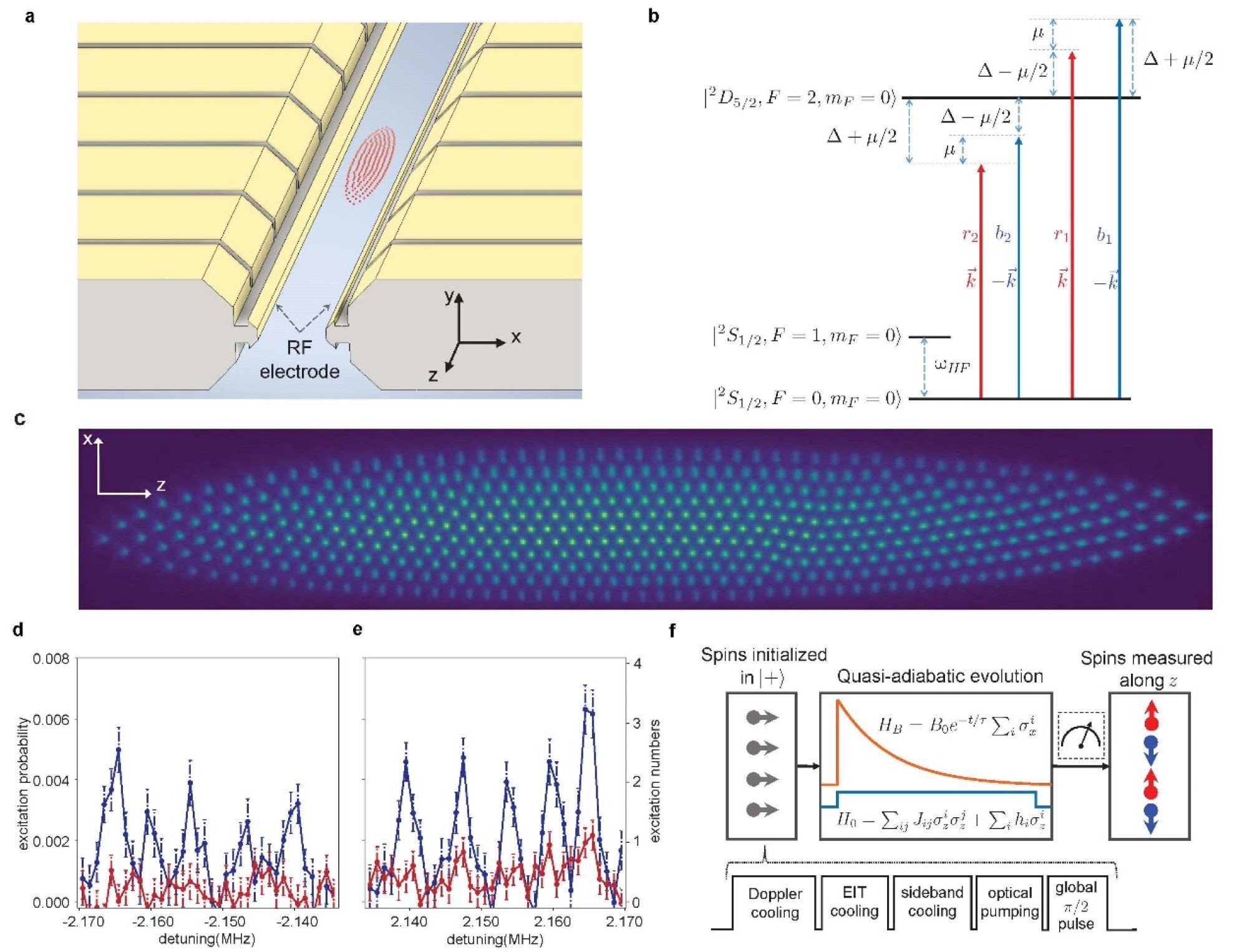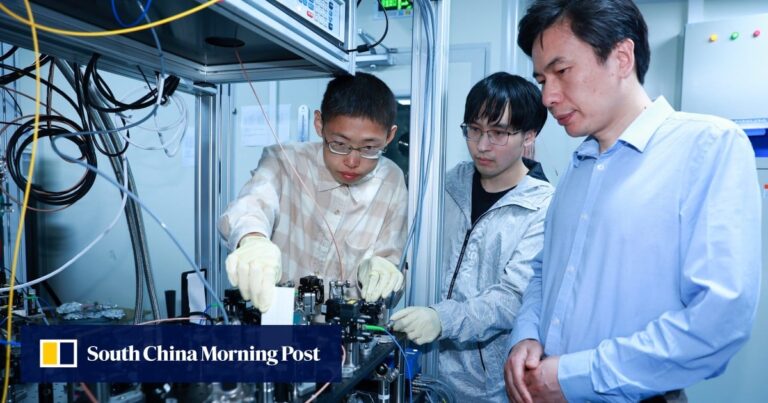This breakthrough was achieved under the leadership of Duan Luming, a quantum physicist known for his pioneering research, who returned to China in 2018 after teaching in the United States for 15 years.
Duan earned his doctorate in 1998 from the University of Science and Technology of China, China’s leading quantum research institute, and then joined the University of Michigan in the early 2000s.
After returning to China, he is now a full-time professor at the Institute of Interdisciplinary Information Sciences, Tsinghua University.
Duan and his colleagues have been pursuing the trapped-ion approach to qubits with several research groups at universities and high-tech companies around the world.
Quantum bits, or qubits, are the building blocks of quantum computers, just like “bits” in regular computers.
But the so-called “fuzzy nature of qubits” makes them extremely difficult to harness in a controlled, repeatable way.
A normal bit can be described as a switch that is either on or off. But because uncertainty and probability rule in quantum physics, a qubit can be both on and off at the same time, as well as existing in a variety of intermediate states.
Ions, or charged atomic particles, are trapped and suspended in free space using electromagnetic fields. Qubits are stored in stable electronic states in each ion, allowing quantum information to be transferred through the collective motion of the ions in a shared trap.
However, scalability remains a key challenge for this system.
This is where the trapped-ion approach comes in, offering one of the most promising architectures for scalable, universal quantum computers.
Researchers have previously achieved quantum simulations with up to 61 ions in a one-dimensional crystal, a solid made up of ions bonded in a regular “lattice,” a symmetrical three-dimensional structural arrangement of atoms, ions, and molecules within the solid.
However, Duan and his team’s quantum simulator has succeeded in achieving stable trapping and cooling of two-dimensional crystals of up to 512 ions, a first for the scientific community.
This feat has huge implications for the future of quantum computing, given that scalability remains a major obstacle: the team’s success in scaling up ions in a stable simulation system could pave the way for building even more powerful quantum computers.

Their findings were published Wednesday in the peer-reviewed journal Nature.
One reviewer commented that this is “the largest quantum simulation or calculation ever performed on a trapped ion system.”
Quantum simulators are devices that actively exploit quantum effects to answer questions about model systems, and through them, questions about real systems. Quantum simulators are an increasingly popular tool in the world of quantum computing, as they help advance scientific knowledge and develop technologies.
Duan and his team also successfully performed quantum simulation calculations using 300 ion qubits. They found that the computational complexity of operating 300 ion qubits simultaneously was astronomical, far beyond the direct simulation capabilities of classical computers.

